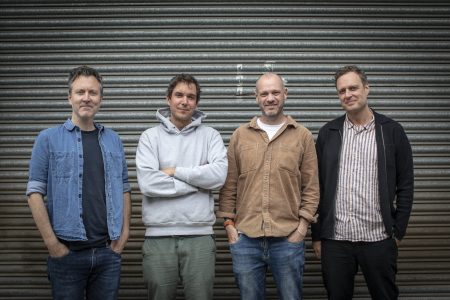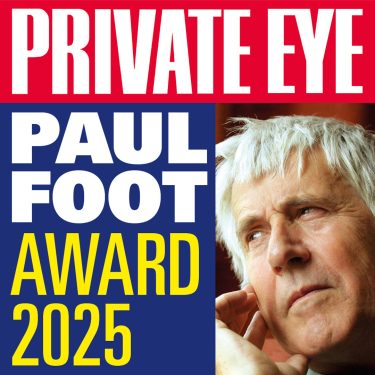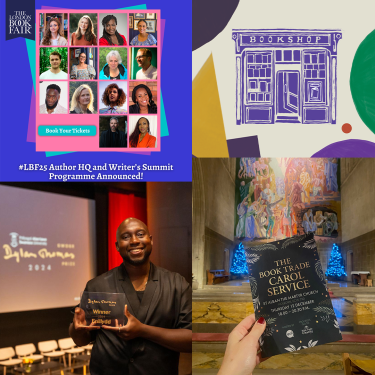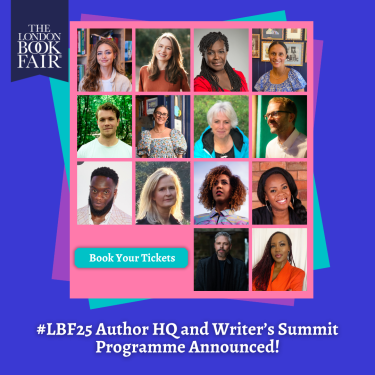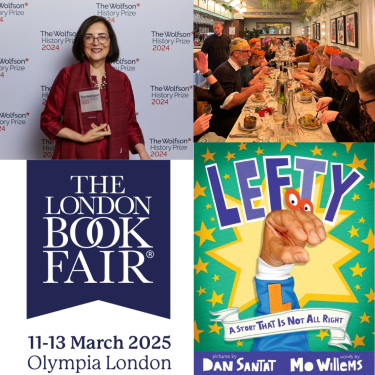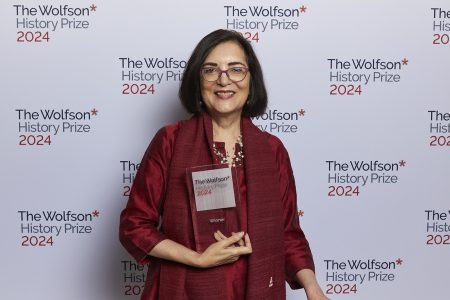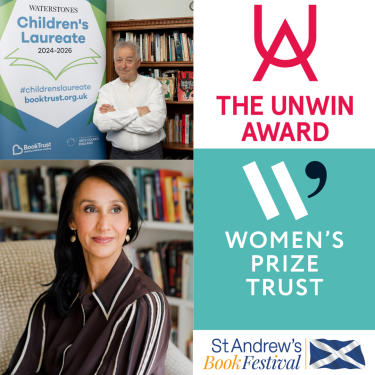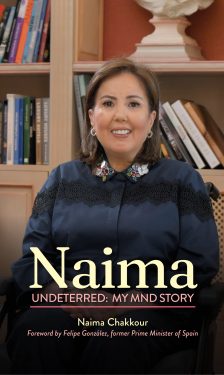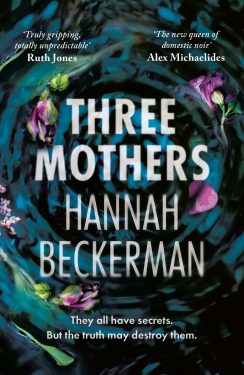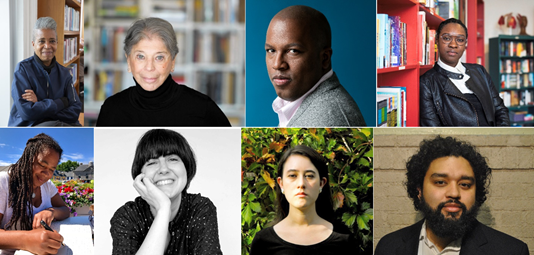
Yale University, New Haven, Monday 22 March 2021: This year’s recipients of one of the richest international literary awards – the Windham-Campbell Prizes – have been revealed today, including 85-year-old memoirist Vivian Gornick, Pulitzer Prize-winning playwright Michael R. Jackson and former Poet Laureate of Toronto, Dionne Brand.
These prestigious annual English-language awards celebrate extraordinary literary achievement rewarding each writer with an unrestricted grant of $165,000 USD to support their writing and allow them to focus on their work independent of financial concerns.
This year’s list showcases the achievement of eight writers at very different stages of their careers – from fresh voices to literary icons – all pushing boundaries with brilliantly bold work, exploring deeply personal and political ideas around identity, race, sexuality and the immigrant experience. They are:
- Vivian Gornick (United States) – nonfiction
- Kate Briggs (United Kingdom/Netherlands) – nonfiction
- Dionne Brand (Canada/Trinidad and Tobago) – fiction
- Renee Gladman (United States) – fiction
- Canisia Lubrin (Saint Lucia/Canada) – poetry
- Natalie Scenters-Zapico (United States) – poetry
- Nathan Alan Davis (United States) – drama
- Michael R. Jackson (United States) – drama
For Nonfiction, this year’s recipients are 85-year-old New Yorker Vivian Gornick – a critic, essayist, journalist, and memoirist whose 1987 work Fierce Attachments was described by the New York Times as the best memoir of the past half century – and translator Kate Briggs, whose beautiful debut The Little Art explores the nature and stakes of literary translation, the relationship between writers and their translators, and the role of this practice in everyday life.
The two experimental writers recognised for Fiction cross literary disciplines: the multi-award winner and former Poet Laureate of Toronto, Dionne Brand, whose most recent novel Theory affirmed her position as a literary tour de force; and linguistic risk-taker Renee Gladman, best known for her critically acclaimed Ravickian quartet, which nods to Samuel Beckett and Anne Carson.
In Poetry, the Prize has celebrated Canisia Lubrin, whose ambitious and original work draws attention to the issues that define our human experience with a focus on power dynamics, Black history, and Black futurities, together with Natalie Scenters-Zapico, who draws on her experience of growing up in the territory between Mexico and the United States to create politically and personally charged work focused on borders.
For Drama, Michael R. Jackson – who won last year’s Pulitzer Prize for Drama with his professional debut A Strange Loop – has been recognised as the Prize’s first music theatre recipient, alongside the highly lauded playwright Nathan Alan Davis, whose work represents both an experiment in form and a continued investigation of what it means to be Black in America.
Mike Kelleher, Director of the Windham-Campbell Prizes, said: ‘Through original and intensely moving work that challenges what we think we know about genre and style, these extraordinary writers cast a forensic eye on the issues that make us human: our identity, our history, our cultural and political experiences. We are incredibly proud to recognize and celebrate such exceptional literary talent.’
Administered by Yale University’s Beinecke Rare Book & Manuscript Library, the Prizes – awarded for fiction, non-fiction, poetry and drama – were the brainchild of lifelong partners Donald Windham and Sandy M. Campbell. The couple were deeply involved in literary circles, collected books avidly, read voraciously as well as penning various works. For years they had discussed the idea of creating an award to highlight literary achievement and provide writers with the opportunity to focus on their work independent of financial concerns. When Campbell passed away unexpectedly in 1988, Windham took on the responsibility for making this shared dream a reality. The first prizes were announced in 2013.
Previous recipients include Bhanu Kapil (Poetry, United Kingdom, 2020), Raghu Karnad (Non-Fiction, India, 2019), Cathy Park Hong (Poetry, United States, 2018), Marina Carr (Drama, Ireland, 2017), Erna Brodber (Fiction, Jamaica, 2017), C. E. Morgan (Fiction, United States, 2016), Helen Garner (Non-Fiction, Australia, 2016), Helon Habila (Fiction, Nigeria, 2015), and Jeremy Scahill (Nonfiction, United States, 2013).
For more information about the Windham-Campbell Prizes please contact Midas PR:
georgina.moore@midaspr.co.uk | Hannah.mcmillan@midspr.co.uk | +44797086649
ABOUT THE 2021 WINDHAM CAMPBELL PRIZE RECIPIENTS
Fiction
Dionne Brand (Canada/Trinidad and Tobago)
Dionne Brand is a novelist, poet, and essayist. The third Poet Laureate of Toronto (2009-2012), Brand was born in Guayaguayare, Trinidad and moved to Toronto in 1970. Aesthetically and politically radical, Brand’s work has made her a central figure in both world and Canadian literature, earning her many awards and honors, including the Governor General’s Award for Poetry (1997), the Griffin Poetry Prize (2011), the Toronto Book Award (2006 and 2019), the Trillium Book Award (1997 and 2019), and the OCM Bocas Prize for Caribbean Fiction (2019). Theory (2018), her most recent novel, exhibits the formal complexity and daring of all of her work; the novel feels no need to declare race and gender and instead situates the narrator fully in her intellectual and social worlds. The book centers on a narrator named Teoria who is trying to complete a doctoral dissertation of vaunting ambition. “My aim at the time,” she says, “was to write the bomb of a thesis that would blow up the buildings,” her research exploding the insistently white, straight, and male institutions of academia. The narrator, comically and perhaps inevitably, fails at such revolutionary goals, distracted by a series of lovers and undone by her own inconsistencies. Funny, wild, and completely lacking in pretension, Theory takes huge formal risks, reimagining the novel of ideas for our own moment, challenging and enchanting the reader at the same time. Brand is the recipient of six honorary doctorates and was poetry Editor at McClelland & Stewart (Penguin Random House Canada) from 2017-2021. Brand was invested as a member of the Order of Canada in 2017.
Dionne Brand said: ‘This is an astonishing surprise. It will take me weeks, maybe months to find the best words to describe my amazement. For now let me say, wondrous.’
Renee Gladman (United States)
A native of Atlanta, Georgia, Renee Gladman is the author of numerous books of fiction, nonfiction, and poetry. At the core of her work is a critically acclaimed cycle of novels about the imagined city-state of Ravicka and its inhabitants, the Ravickians: Event Factory (2010), The Ravickians (2011), Ana Patova Crosses a Bridge (2013), and Houses of Ravicka (2017). Like Italo Calvino’s Invisible Cities and Samuel R. Delany’s Dhalgren, Gladman’s Ravicka novels open onto a world both like and unlike our own, presenting a surrealistic vista of Escher-like architectures that is strange, vivid, and uncanny yet that is always lucid and, on occasion, piercingly familiar. In Ravicka, we are all dislocated and queer, strangers in a strange land—alien to others and, even, to ourselves. Gladman’s work, both poetry and prose, bears the mark of a singular and vertiginous authorial intelligence, a fierce and careful attention to language, and a willingness to take formal and linguistic risks in form, language, and subject. She has also published two art monographs, One Long Black Sentence (2020), indexed by Fred Moten, and Prose Architectures (2017). A graduate of Vassar College and New College of California, as well as the recipient of fellowships, grants, and residencies from the Radcliffe Institute for Advanced Study (2015) and the Lannan Foundation (2017), among other institutions, Gladman makes her home in New England.
Renee Gladman said: ‘First, I blinked, then I sat and stared for a very long time. Where was my body? I needed to engage it in an ecstatic dance. I found it. I danced. With music, everywhere in the house. It is electrifying to receive this level of support from one of the most prestigious institutions in the world and an honor to be among this brilliant group of international writers— many of us are of color, many of us are women. I can think of little that is more “yes” and “onward” than this gift!’
Nonfiction
Kate Briggs (United Kingdom/Netherlands)
Kate Briggs is a writer and translator whose brilliant first book This Little Art (2017) defies categorization. It is at once a memoir, a treatise, and a history, considering Briggs’s own life as a translator from French to English, offering an account of the nature and stakes of translation, and presenting a history of three women translators in the twentieth century. The book articulates and refracts the many strangenesses and paradoxes of translation as a practice and an art. Translation, Briggs shows us, is both lonely and collaborative, disciplined and profoundly educational, a private devotion and a public project. It energizes and frustrates, requiring from its practitioners passion, precision, and an openness to transformation. Briggs is the translator of two volumes of Roland Barthes’s lecture notes at the Collège de France, The Preparation for the Novel (2011) and How to Live Together: Novelistic Simulations of Some Everyday Spaces (2013), and co-translator of Michel Foucault’s Introduction to Kant’s Anthropology (2008). She teaches at the Piet Zwart Institute in Rotterdam, Netherlands and is currently working on a new book: a novel-essay titled The Long Form.
Kate Briggs said: ‘I am astonished by this news – I don’t expect to ever stop feeling astonished! Or endlessly, endlessly grateful. It is the most unexpected gift of freedom and permission. For it to come at this stage in my writing and translating life, when I feel like I am (still) only just beginning, is extraordinary.’
Vivian Gornick (United States)
Born in the Bronx to Russian Jewish immigrants, Vivian Gornick is an essayist, memoirist, and literary critic. As a writer who is both Jewish and a woman, Gornick has described herself as ’twice an outsider,’ and this perspective has informed her work on subjects as varied as American communism, Second Wave feminism, the writing of personal narrative, and the practice of re-reading. In her memoir Fierce Attachments Gornick offers an extraordinary account of her own tempestuous relationship with her mother, detailing in precise, forceful prose the fallout from an extravagant family drama. In other works, like The Odd Woman and The City (2015) and The Situation and The Story (2001) she investigates what it means to love and live in the modern city; and what it means to struggle with personal narrative. In all her books she considers why we read, why we write, and how we find meaning—sometimes through writing, sometimes through political passion, and always through conflict and contestation. “To live consciously,” she writes, “is the real business of our lives.” A former fellow at the Radliffe Institute at Harvard University (2007-8) and the recipient of a Guggenheim Fellowship (1990), among other honors, Gornick lives in New York City.
Vivian Gornick said: ‘Wha-a-at? I don’t buh-live this!’
Poetry
Canisia Lubrin (St Lucia/Canada)
Canisia Lubrin is the author of two critically acclaimed collections of poetry: Voodoo Hypothesis (2017) and The Dyzgraphxst (2020). Voodoo Hypothesis, a finalist for the Raymond Souster Award (2018), is a wildly ambitious work of speculative poetics, brilliantly combining physics, philosophy, and pop culture. The book investigates, with a steady eye and deep moral seriousness, state-sanctioned violence against Black individuals and cultures—all while remaining, in the words of Vivek Shraya, “an imperative invocation of Black dreams.” The Dyzgraphxst continues Lubrin’s exploration of Black history and Black futurities. A single long poem that is organized into seven acts or movements, the book feels private in gesture and grand in scale, offering a piercing examination of selfhood and the forces that threaten it: “I was not myself,” a speaker worries, “I am not myself. My self resembles something having nothing to do with me.” Born and raised in Saint Lucia, Lubrin studied in Canada, completing a BA at York University and an MFA at the University of Guelph. She teaches creative writing at OCAD University and poetry at the University of Toronto. She is also incoming poetry editor at the literary press McClelland & Stewart and has been a Writer in Residence for Queen’s University and for Poetry In Voice, an organization that sends poets into secondary school classrooms. She lives in Whitby.
Canisia Lubrin said: ‘What to make of this profoundly reassuring way to be utterly stunned into intensifying an old love? It is impossible to express what this extraordinary encouragement means, what being in such company during such a catastrophic time, will make possible. This invitation to trust even more deeply, the potential of the not-yet-written is transformative; and thanks to the Windham-Campbell Prize, I will face the world and these alphabets tomorrow and the day after with renewed vigour.’
Natalie Scenters-Zapico (United States)
From the sister cities of El Paso, Texas and Ciudad Juárez, Chihuahua, Mexico, Natalie Scenters-Zapico has published two collections of poetry, The Verging Cities (2015), which won the PEN/Joyce Osterweil Award in Poetry (2016), and Lima :: Limón (2019), a finalist for the Griffin Poetry Prize (2020) and the Kingsley Tufts Poetry Award (2020). Scenters-Zapico works at the borders, exploring the territory between the United States and Mexico, English and Spanish, the masculine and the feminine, the psychological and the physical, the violent and the tender. In her poems, this in-between space becomes a site of aesthetic power and possibility, even as it remains a zone of danger, where the self might be lost or violently transformed. Images of the dead haunt Scenters-Zapico’s writing: an archaeologist hunting for fossils instead finds a young woman, “her face already / bone. Her body, scattered”; a speaker laments “the boy I love gone missing, his father found with no teeth / In an abandoned car.” And yet for Scenters-Zapico death is also another border, a space both real and imagined where beauty and terror feel equally at home. A graduate of the University of Texas at El Paso and the University of New Mexico, she has published poems in The Believer, Gulf Coast, Poetry, and Tin House, among other places.
Natalie Scenters-Zapico said: ‘When I got the news that I had won the 2021 Windham-Campbell Prize I nearly broke down in tears on the video call. I kept waiting for the moment they would look at their files and realize they had contacted the wrong person. I can only continue to work to pay this honor forward to my literary and border communities.’
Drama
Nathan Alan Davis (United States)
A native of Rockford, Illinois, Nathan Alan Davis is one of the most exciting and versatile young playwrights working today. Each of his plays represents both an experiment in form and a continued investigation of what it means to be Black in America. His most recent work, The Refuge Plays, is an ambitious trilogy of short plays that spans four generations of a family seeking both literal and figurative refuge in a world that is by turns cruel and indifferent. Skillfully weaving the mythic and the mundane together, the trilogy presents a tender portrait of a culture and a family, considering the meanings of home and place, showing how the past continues to shape the present. In The Wind and the Breeze, Davis uses rap, rhyme, and freestyle music to stunning effect, telling the story of Sam, a young hip hop star who feels tied to his neighborhood even while his friends urge him to pursue opportunities in the wider world. In other critically acclaimed plays like Dontrell Who Kissed the Sea and Nat Turner in Jerusalem, Davis takes a philosophically and poetically rigorous approach to Black identity in America and in the African diaspora, examining how the idea of narrative plays into both—how stories tell us who we are, where we’ve been, and where we’re going. In the words of Nat, “The knowledge of it was in the air. / And still is. / Once something is in the air you can’t help but breathe it in. / It becomes a part of you. And then you breathe it out. / And now your own substance is mingled with it.” Davis has received many awards and honors for his writing, including, most recently, a Steinberg Playwright Award (2020), a Rita Goldberg Fellowship (2019), and a Whiting Award (2018). An alumnus of the University of Illinois at Urbana-Champaign, Indiana University Bloomington, and the Juilliard School, he is a Lecturer in Theater and Berlind Playwright-in-Residence at Princeton University.
Nathan Alan Davis said: ‘This is a truly life changing moment and an incalculable blessing. To have my work thought of and honored in this way means more than I can say.’
Michael R. Jackson (United States)
Born in Detroit, Michigan in 1981, Michael R. Jackson is a composer, lyricist, and playwright. His 2020 musical, White Girl in Danger, is inspired by a plethora of pop culture influences, from Lifetime original movies of the 1990s with titles like Mother, May I Sleep With Danger and She Cried No to that most serial of serial forms, the daytime soap opera of the 1970s, 80s and 90s. The play’s protagonist is a young Black woman who longs to be as in distress and un-stoical as her white counterparts—a narrative situation revealing Jackson’s real affection for his sources even while he subverts them, often for sharply humorous ends. A Strange Loop (2019), which won the Pulitzer Prize for Drama (2020), asks questions about identity—particularly Black male queer identity—in telling the story of a twenty-something Black gay man named Usher who, appropriately, works as an usher during a run of The Lion King on Broadway. Usher constantly obsesses over “the latest draft of his self-referential musical”; that musical, like the one he is in, is called A Strange Loop. This doubling, even tripling, of references is just one of the devices that Jackson deploys to recreate the strange and cruel hall of mirrors that is Usher’s selfhood. Bawdy, bright, and brutal, by turns anguished and joyful, Jackson’s work reflects our own reality even while it tries to create possibilities for better, more expansive worlds. The recipient of many awards, including a Lambda Literary Award for Drama (2020), a Helen Merrill Award for Playwriting (2019), and a Whiting Award (2019), Jackson holds a BFA in Playwriting and an MFA in Musical Theater Writing from New York University’s Tisch School of the Arts.
Michael R. Jackson said: ‘Words cannot adequately express what an honor and thrill it is to be the first musical theater writer recipient of the prestigious Windham Campbell Prize. In a culture preoccupied with “representation” and “content creation,” this award feels like a validation of my preoccupation with pushing the boundaries of form as I attempt to untangle some of the deeper questions and contradictions of our rapidly changing world.’
About Windham-Campbell Prizes
Established in 2013 with a significant gift from Donald Windham in memory of his partner of 40 years, Sandy Campbell, the Windham-Campbell Prizes are among the richest and most prestigious literary prizes on earth. The community, camaraderie, diversity, and inclusive nature of the Prizes honours the spirit of their lives. www.windhamcampbell.org @WindhamCampbell
